A life well lived
From refugee to matriarch: Joanna Kessler, 1929–2025
Joanna Kessler was so many things at once. A helper, a doer, a voracious reader of biographies, a supporter, an organiser, a writer and a taxi service. She was resolute and kind, a devoted wife, doting mother, cherished friend, a lover of the arts and of kindness. But to just 11 people, she was simply ‘Grandma’. And I got to be one of them.
She would occasionally allude to the trauma of her past, but she never allowed it to define her. I don’t know how, whether through sheer force of will or a form of radical acceptance, but she seemed to locate an easy equilibrium. One that has thus far eluded me as the veil of antisemitism — never fully lifted — has begun to reassert itself.
For that reason, it would be out of step with how she chose to live her life if I were to dwell, in death, on what was ultimately just a small part of it. But at the age of nine, the little girl called Inge boarded a train in Vienna bound for London, among the first of 10,000 Jewish refugee children to escape Nazi-occupied Europe on a Kindertransport.
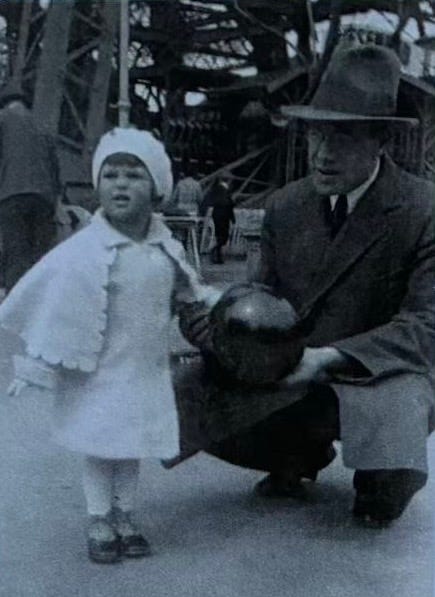
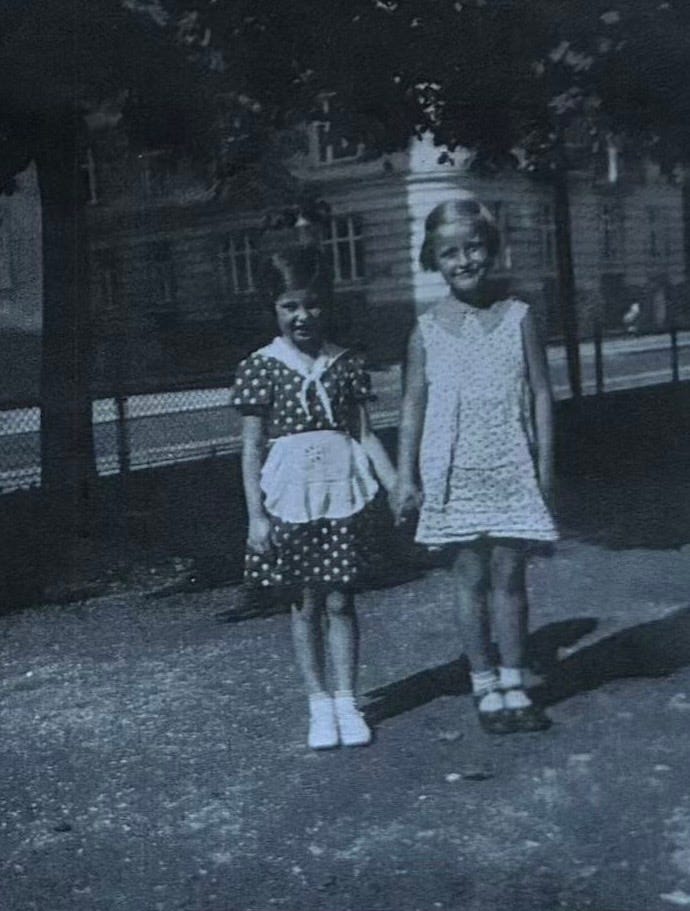
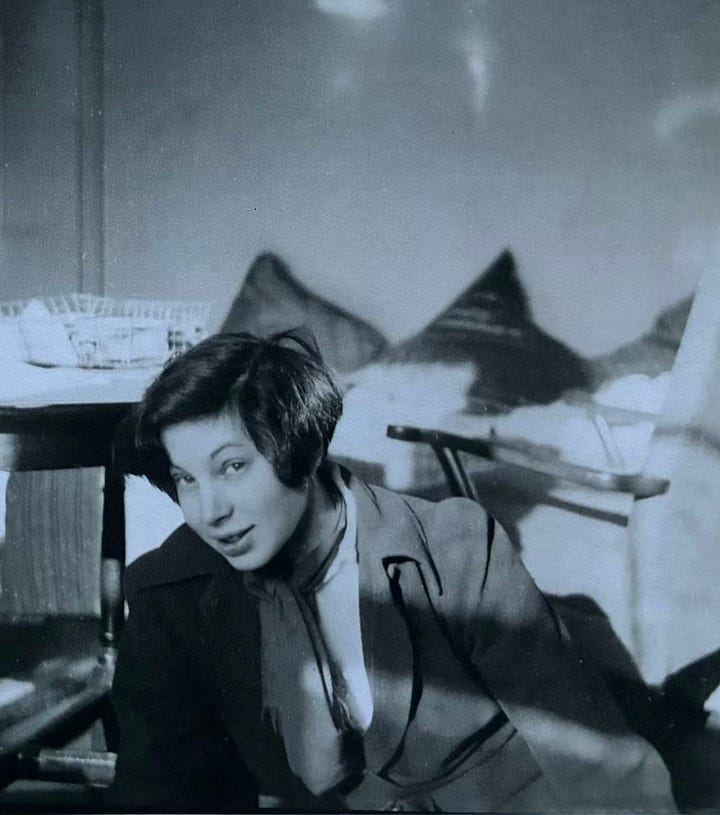
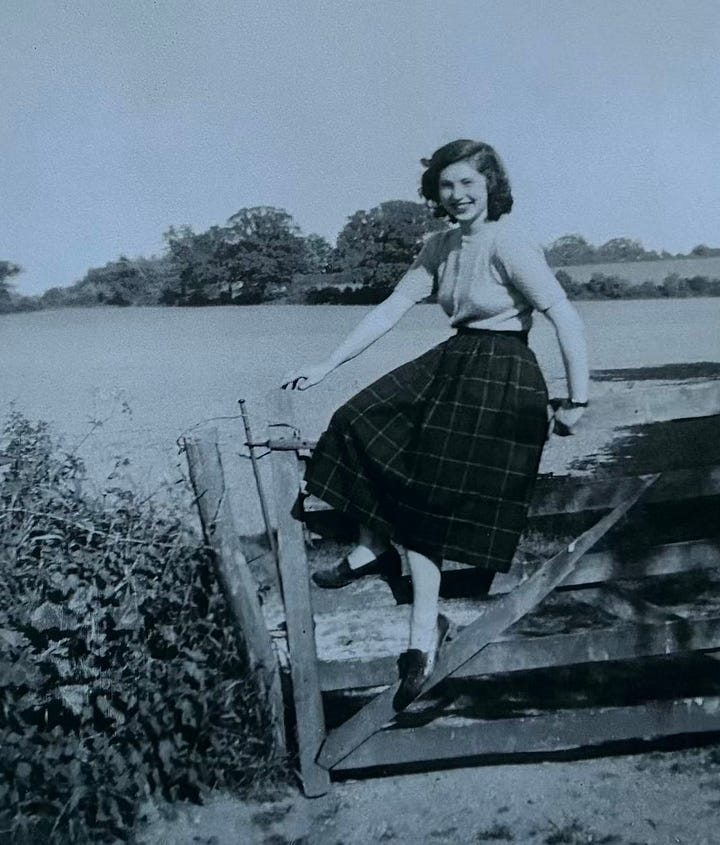
She was so young. Her father, Karl, had handed her four postcards, one to post at each stop — Munich, Aachen, Ostend and London — so that he could track her progress. Terrified and homesick, she filled them all out in Munich and posted them back. It was only some days later that Karl learned his daughter had made it to safety.
She was, in so many ways, one of the lucky ones. Something she never allowed herself to forget. To live, when two out of every three European Jews were dead by 1945. To be reunited with her father. To obtain British citizenship. To study at the LSE, where she met Willie Kessler — by chance a fellow Jewish Austrian refugee — to whom she would be married for 62 years. To have four sons, each named after kings of England.
The family home was always bursting with life. Five men, a rolling cast of friends and girlfriends, labradors, grandchildren and great-grandchildren. The first dog I met was called Toby, and henceforth she was known to me and my sisters as Grandma Toby1 which, on reflection, she tolerated gamely. She adored her family, but having once relied on the kindness of strangers, she was determined to ensure that others in need could find the same.
She supported her fellow refugees and worked with Citizens Advice as a means of providing practical help. She became a Justice of the Peace and volunteered for the Out and About Club, hosting what we affectionately called ‘old ladies tea parties’ for so many years that eventually she herself would have qualified as a guest rather than an organiser — and for which she was awarded an MBE for services to charity.
She never fell out of love with Viennese culture, in particular the food. Chocolate roulade, apple strudel and Wiener schnitzel were always on the menu. Though she combined this with being the most thoroughly English person I ever met. Any day that began with marmalade on toast and ended with fish and chips and mushy peas was a good one.
She was full of kindly words and sage advice. “Lovely weather for ducks” she would reassure me as a child whenever rain got in the way of outdoor activities. When I was older, she once urged me never to apologise in writing, explaining: “People hold onto the notes and remember.” She also knew her own mind. Even before her recent decline, she confided in me that she had no desire to live to 100, as her beloved stepmother, Fritzi, had.
There was no such thing as ‘extended family’, only family. When she arrived in London — without parents, brothers or sisters to guide her, unable to speak English, unused to our strange customs, the food, the open fireplaces — her cousins, Liesl and Gretl, were on hand to help her settle into a new life. She never forgot it.
“It was because of their kindness that I realised the importance of cousins”, she later wrote. In that spirit, she and Willie would establish a new tradition: the grandchildren’s lunch. An annual gathering of cousins, partners, their children and Beagles, so that there would “always be cousins around to help each other.”
Born in 1929, she sat on the knees of her grandparents, themselves born in the mid-19th century. And she lived long enough to have her own great-grandchildren sit on her knee, who can hope to live well into the 22nd century. At 96 years, her time on Earth was not short. But her bridge across time? That stretches beyond a quarter of a millennium.
One life saved when so many others perished — and almost a century later, it produced four sons, 11 grandchildren and five great-grandchildren, among whom there are lawyers, academics and entrepreneurs, architects, teachers and artists, charity workers and even the odd newsletter writer.
From refugee to matriarch — a journey marked by grace. May her memory be a blessing.
As opposed to my mom’s mom, an American, and therefore obviously called Grandma Doodle (of Yankee Doodle Dandy fame)
With thanks to Sarah Kessler and the book, Unbekannterweise, Stories from Seaforth



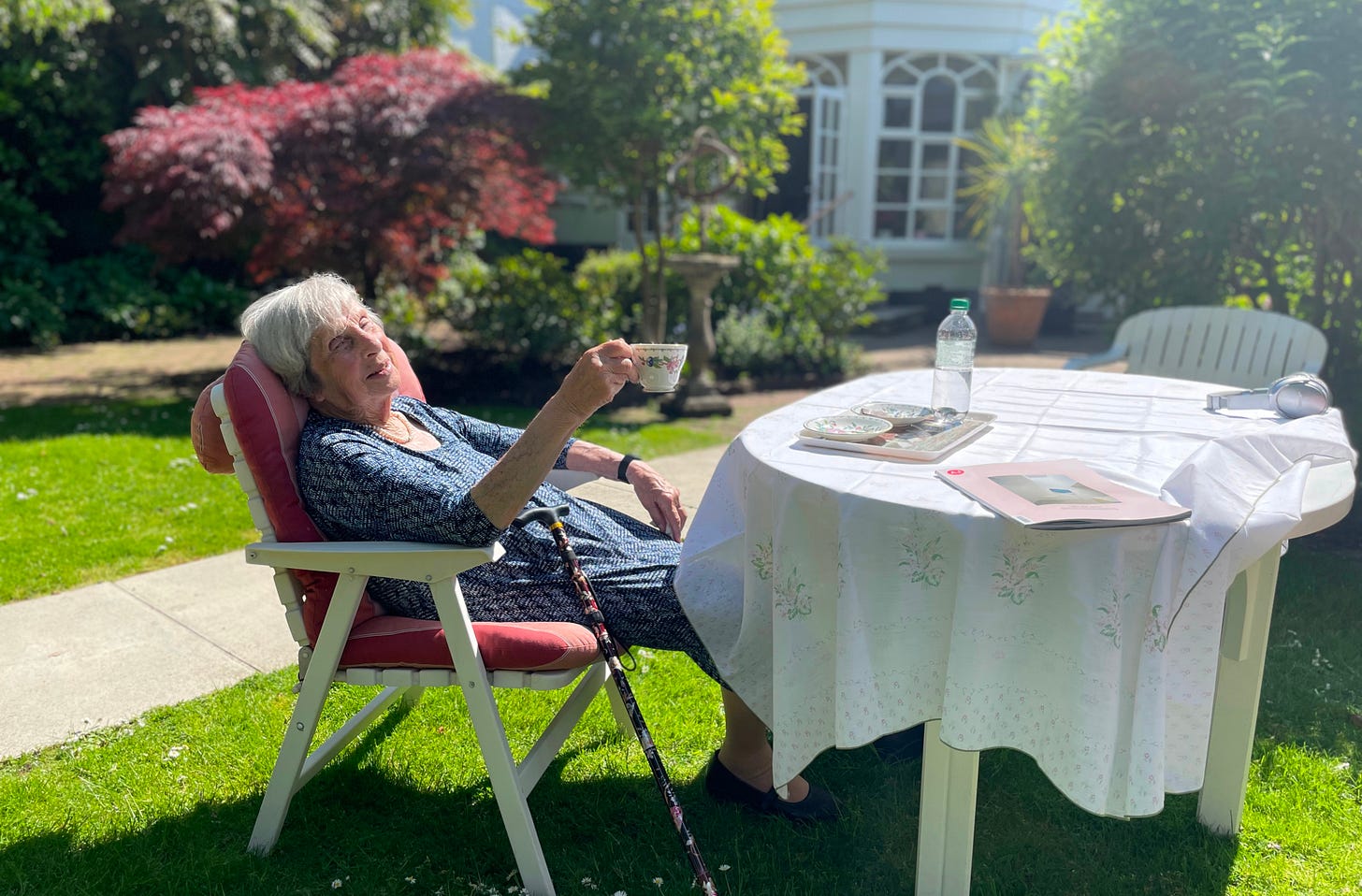
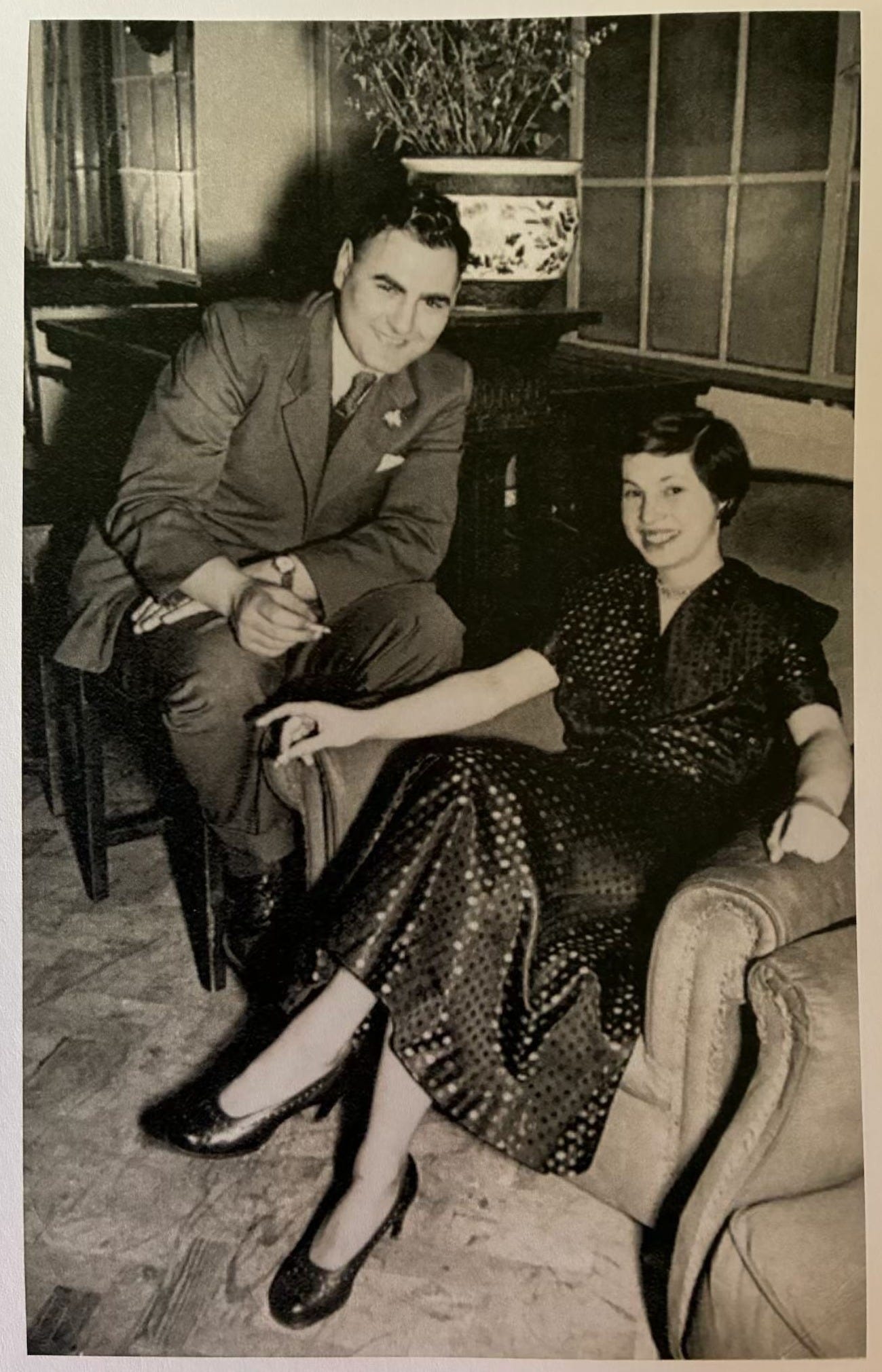
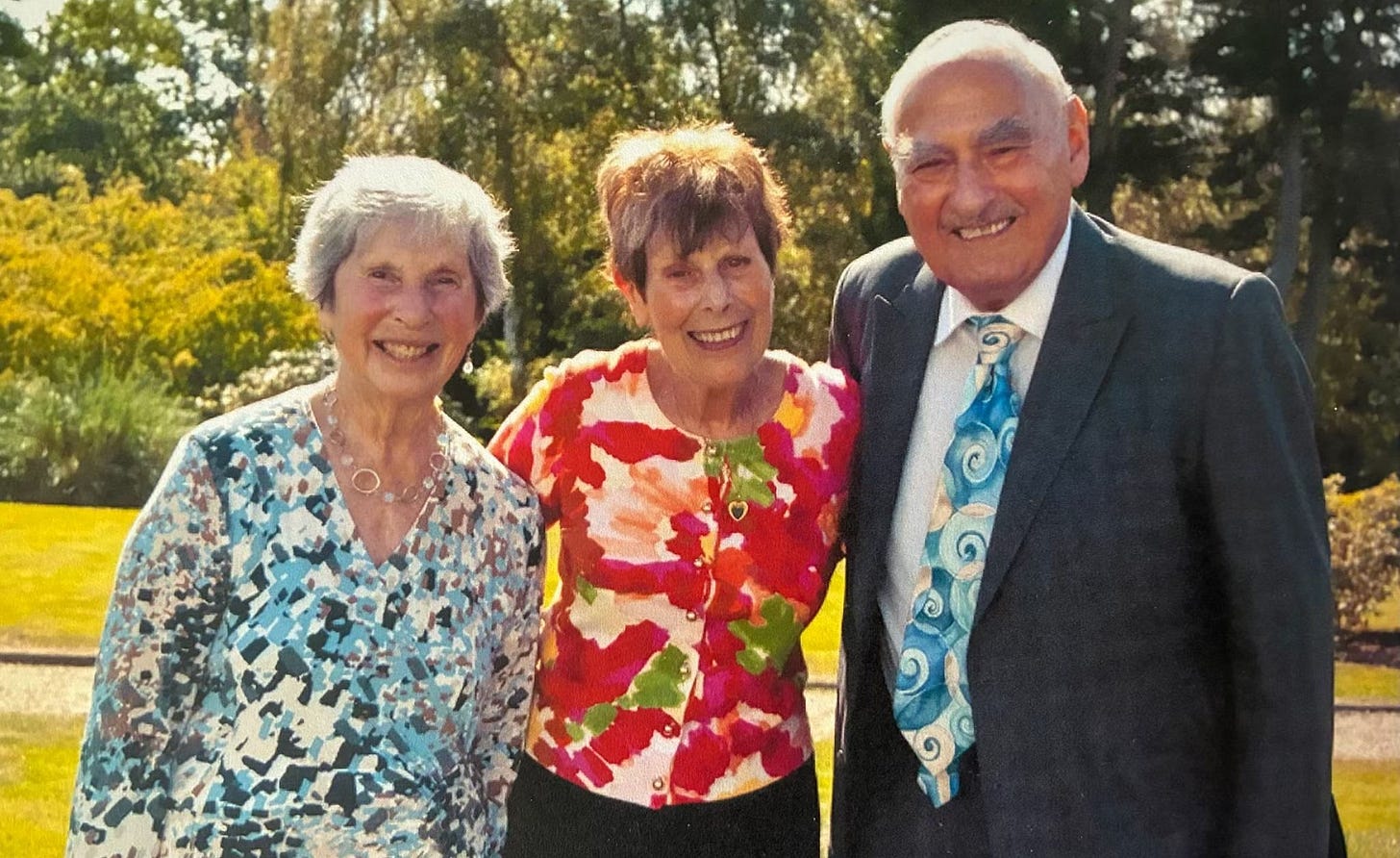
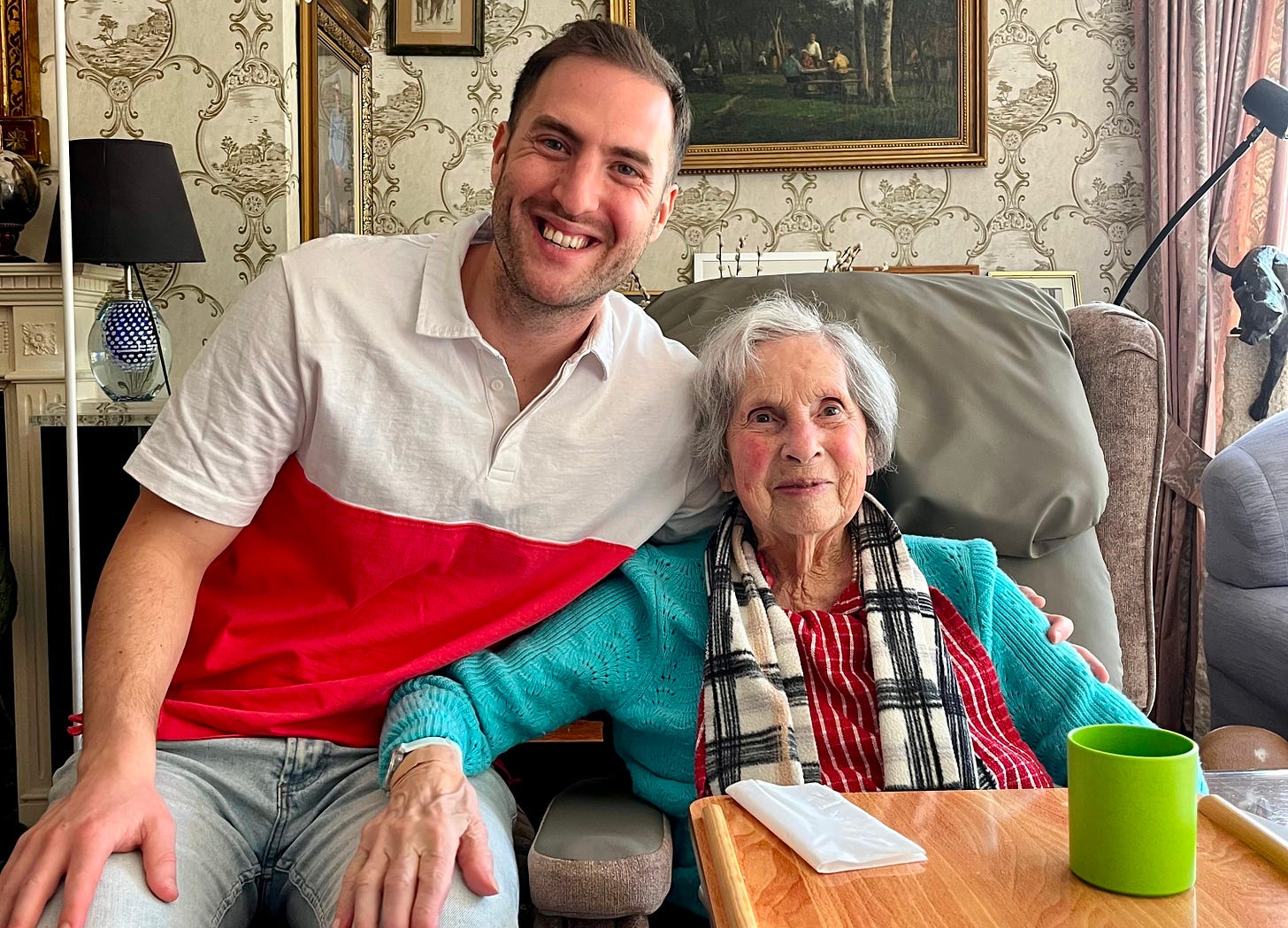
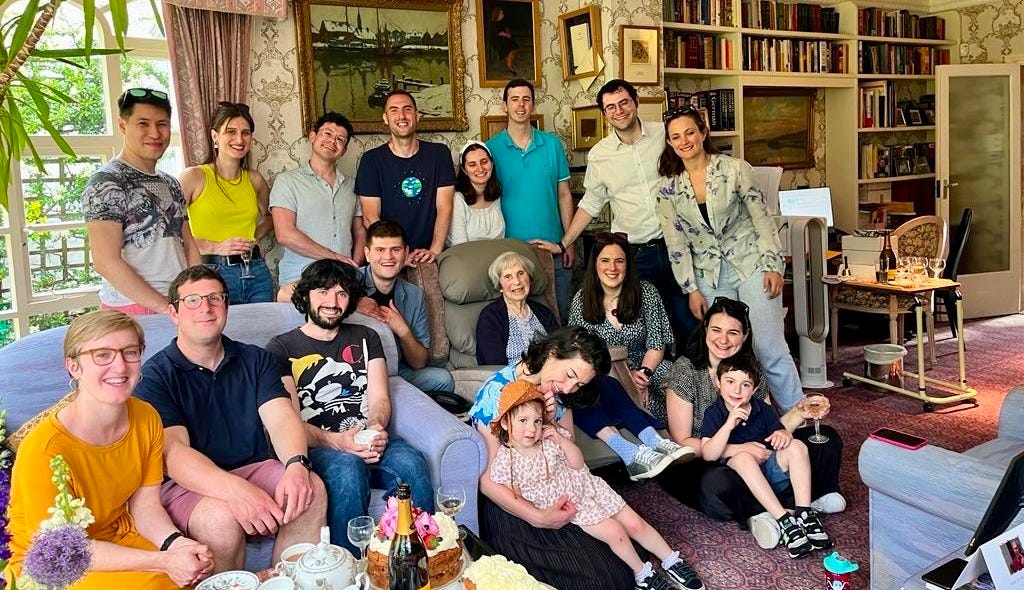
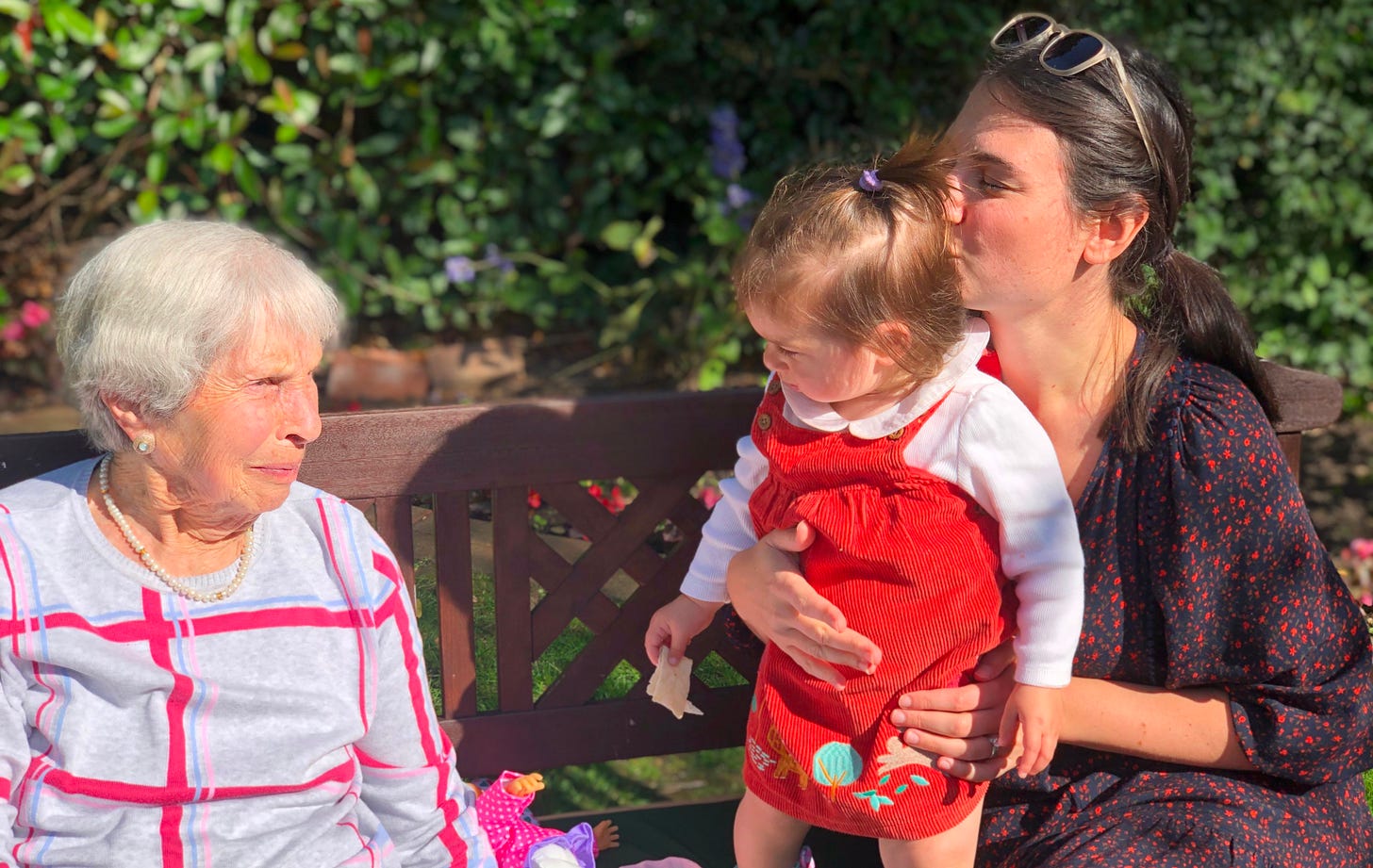
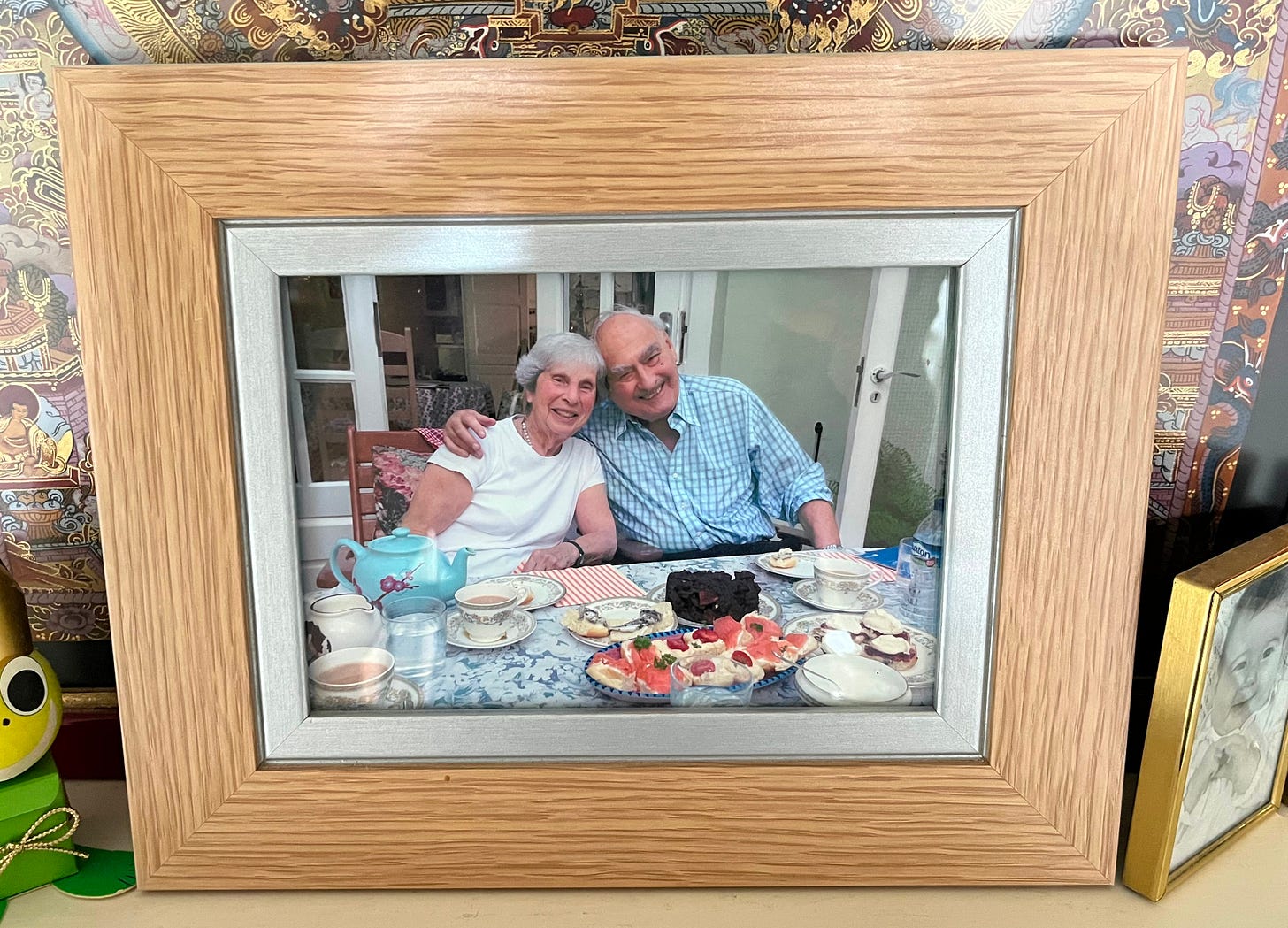
Beautiful words. Wishing you (and the family) long life.
A lovely piece of writing, and very moving.